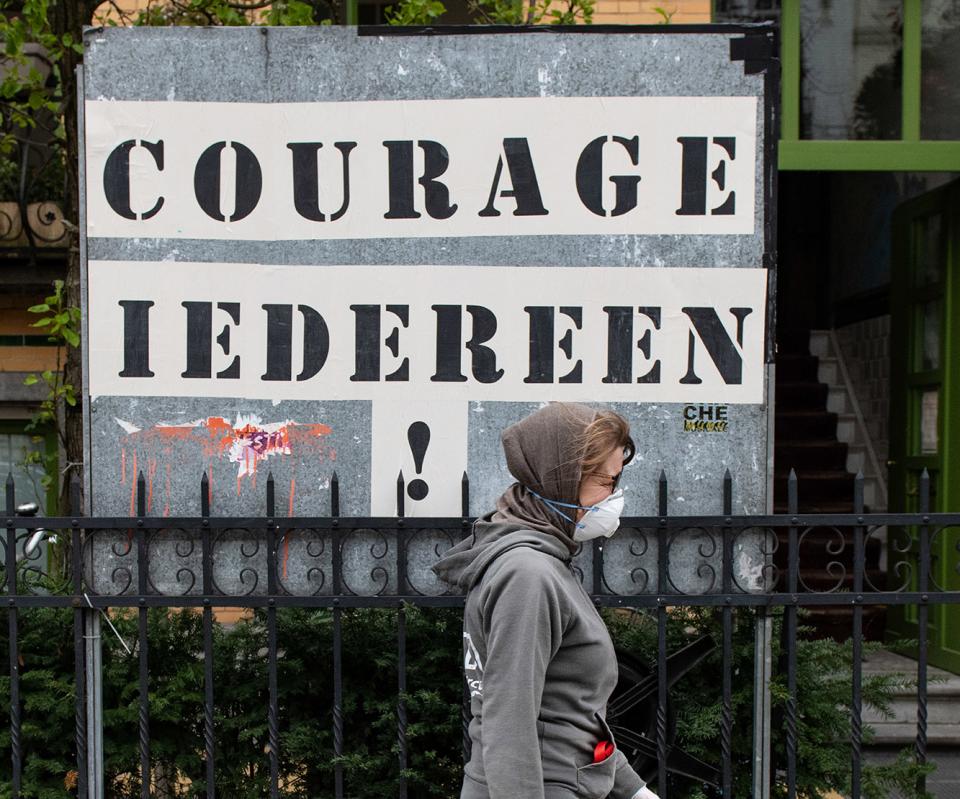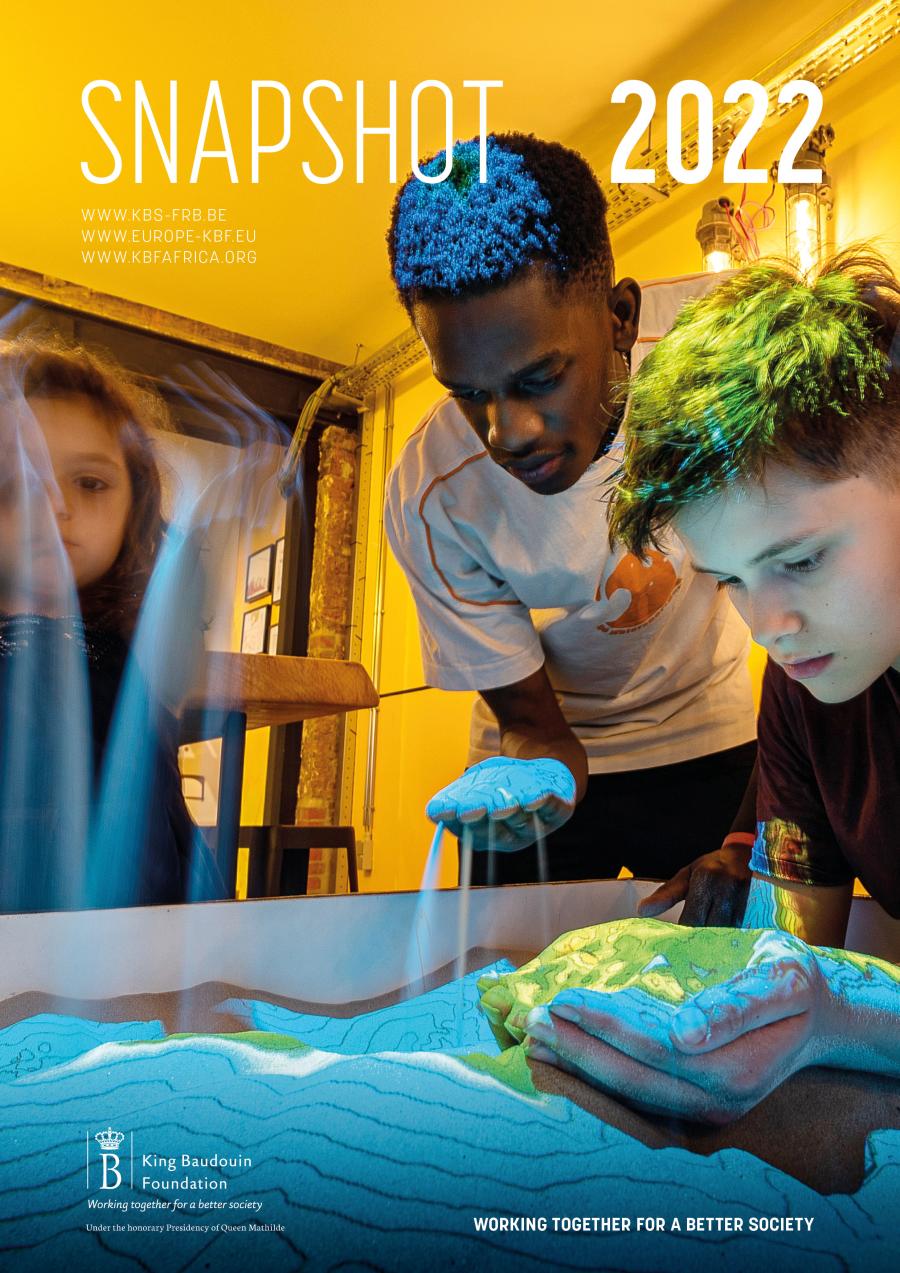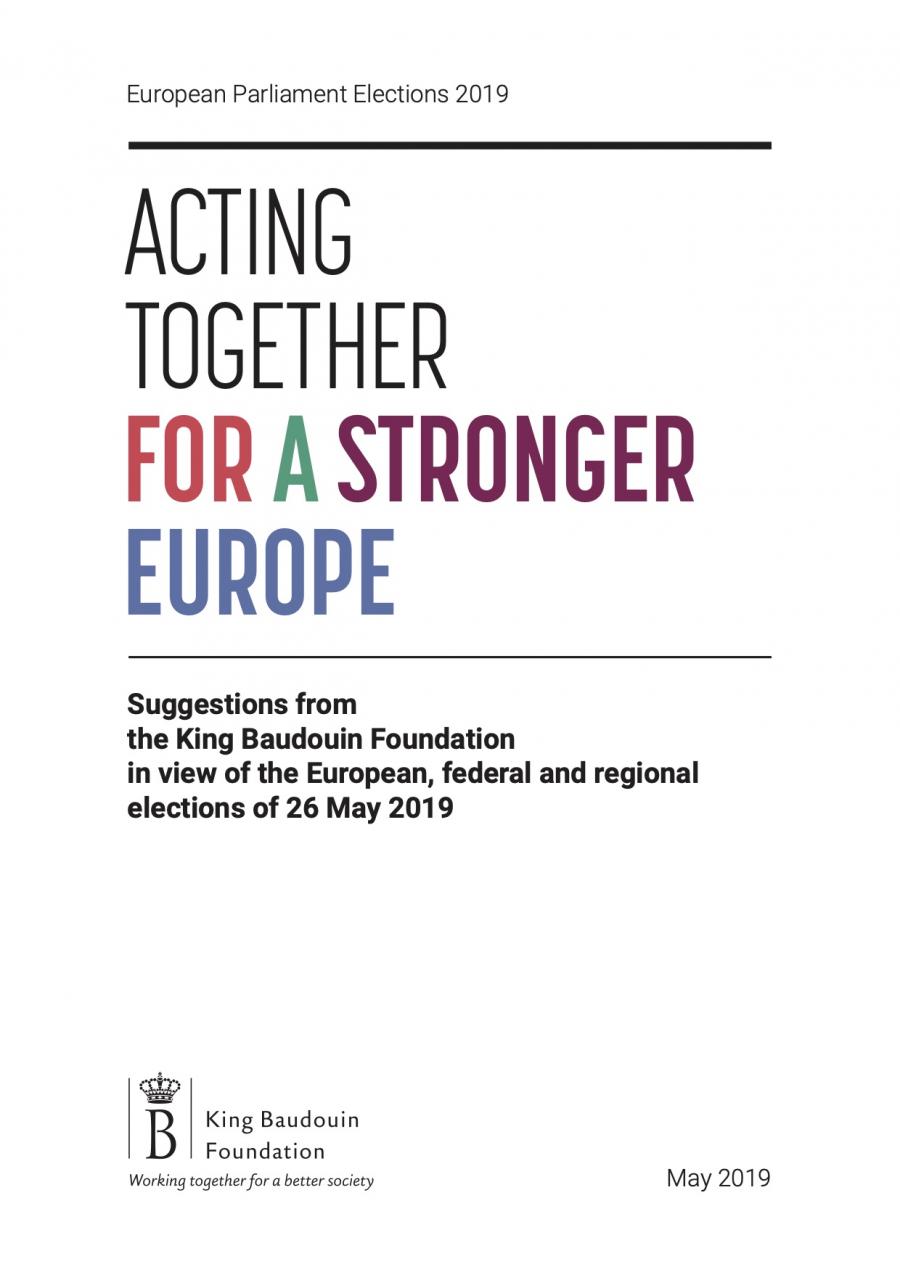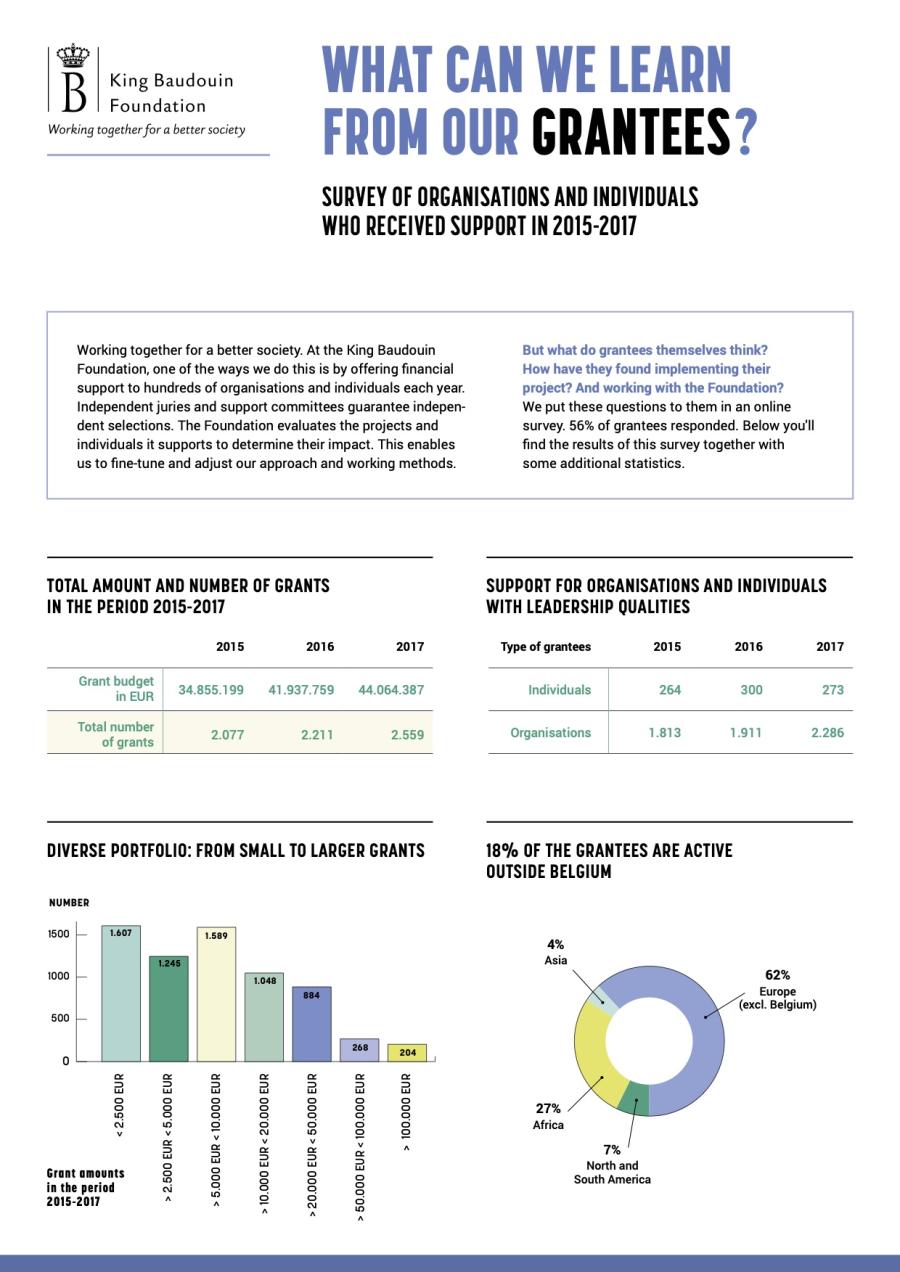
Comme Chez Nous: emergency social care during the COVID-19 crisis
During the coronavirus epidemic, homeless people are even more vulnerable than usual. We see already rare resources dwindling and services that come to their aid often having to close. Yet there are places that still care for them, despite everything. However, given the increased number of beneficiaries, such places have to reorganise themselves with limited staff – a reorganisation that itself involves costs. An emergency call for projects from the King Baudouin Foundation is enabling associations involved in the fight against poverty and homelessness to benefit from rapidly-arranged aid of 10,000 euros. One such example is the Comme Chez Nous association in Charleroi.
The COVID-19 epidemic respects no-one. It hits the homeless just as hard, because numerous care services have closed their doors. This is the observation made by Sophie Crapez, Director of the Comme Chez Nous day care centre for the homeless in Charleroi. “At present, we know that some services are not admitting anyone else, others are closing completely, whilst still others are closing temporarily to re-organise. But one thing is sure: access to food banks, social grocery shops and second line services is very uncertain or even inexistent. Begging for products has been reduced to zero. Unsold food is no longer distributed. The difficulties of the homeless are growing as the virus spreads.”
These additional problems lead the most vulnerable to seek help in the only services still open, such as the Rebond, the day care service of Comme Chez Nous, where people can take a break, get something to eat, get washed. Since the epidemic began, the people who go to the Rebond are more numerous than before and there is a different profile. “We see more families with children under the age of ten during the week, and more people without documentation at the weekend, but this is developing too’, says Sophie Crapez.
Reorganisation
Whilst the demand for help is greater, the supply is under much more intense pressure, because at the same time, services have to deal with a fall in the number of staff. Three colleagues from Comme Chez Nous are confined to home, suspected of having coronavirus, whilst others cannot be at work because a member of their family is a potential carrier of COVID-19. And finally, most of the 60 volunteers who help out at the association are obliged to be confined to their homes. “In short, only half of our salaried staff, around 15 people, can actually work on the ground” says Sophie Crapez.
It was essential that the Rebond, as its name suggests, ‘bounced back’ and radically changed how it worked, especially given that, right at the beginning of the lockdown, the team learned that one of the beneficiaries was a potential COVID-19 carrier. “The team was so stressed out. We had to close for a whole day so that we could re-think how we operated, because we could not care for so many people in the proper conditions” explains the Director.
Initially, the distribution of food was done outside. But desperate times call for strong measures: a hole was drilled in the association’s wall to install a water supply so that the beneficiaries could wash their hands. A mobile toilet was installed in the street. Access to the showers in the association’s premises was screened to prevent people forming groups and the temperature of those coming to the centre was taken, thanks to a distance thermometer lent by Charleroi Airport.
Despite these radical changes, the care provided, partially in the street, was not optimal, because the association’s building in the centre of Charleroi was not big enough. So Comme Chez Nous set off to look for larger premises that would enable people to be received under a roof, whilst still respecting the rules of social distancing. “We are an emergency social service, so we must create the conditions that ensure continuity whilst ensuring that the beneficiaries do not contaminate each other or the people who work in the centre,” explains Sophie Crapez. So the Rebond moved premises to a sports hall belonging to the Commune of Marchienne-Au-Pont, but on the territory of the Charleroi local authority, which agreed to make it available.
Welcome aid for additional costs
The various changes undertaken have resulted in additional costs for Comme Chez Nous. The association had to engage the services of a cleaning agency. Comme Chez Nous also had to purchase sheets and towels, as well as protective material. In addition, furniture had to be provided for the sports hall and this was without counting the purchase of soap, the huge additional costs of water and the purchase of food.
Other services provided by Comme Chez Nous – the aim of which is the social reintegration of the homeless – are also called for in times of crisis. This is especially the case at Chez Toit, the association’s housing service, which is currently reviewing its criteria for help, as Sophie Crapez explained: "We identified some thirty particularly vulnerable people who ought to benefit from the housing we manage. During the crisis, it’s we who are going to take charge of the costs – sometimes the rent, or the gas or electricity bill. We don’t take account of people’s ability to pay for some or all of these costs.”
"The support we received is enabling the association to breathe a little more easily and deal with the most urgent expenses."
Just for the month of March, Comme Chez Nous had to spend around 25,000 euros above normal. The 10,000 euros the received as part of the emergency call launched by the King Baudouin Foundation enabled the association to breathe a little and to cope with the most urgent expenses. “I got a call at the very beginning of the crisis about our needs” explained Sophie Crapez, who stressed “the responsiveness and flexibility” of the King Baudouin Foundation. It was help that was more than welcome.
More about the emergency call ‘COVID-19: vulnerable people’
Within the framework of the health crisis linked to coronavirus, the King Baudouin Foundation quickly launched an emergency call for organisations involved in the fight against poverty and homelessness, through a fast-track and simplified procedure. The objective is that the vulnerable groups with which these organisations work, and who are seriously affected by the COVID-19 crisis, can continue to be helped. The organisations selected are granted a lump-sum support of 10,000 euros. In total, some 5 million euros have been allocated by the Foundation to grassroots actors coping with the emergency in Wallonia, Brussels and Flanders: 3 million euros to organisations fighting poverty and homelessness and 2 million euros to front line aid and care organisations. For more information
Other stories
Inspiring engagement!

Building a home for all in Forbidden Colours
Inclusion
"What I see with Forbidden Colours is this same desire to make sure that we can achieve this space where people are not excluded, where it's not ‘us against them’ but ‘what connects us to them’?"
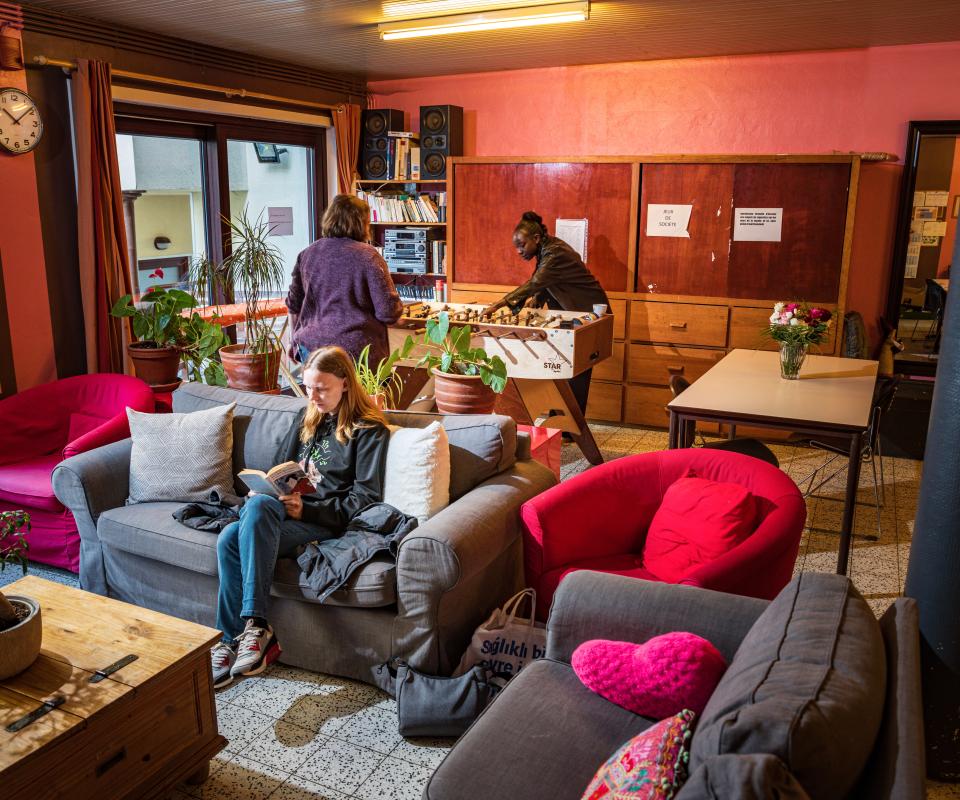
At Accueil Montfort, women in situations of exclusion find help and comfort
Inclusion
"This support helps soften the blow and avoids us having to increase the residents’ financial contribution.”
Other publications
Other philantrophy
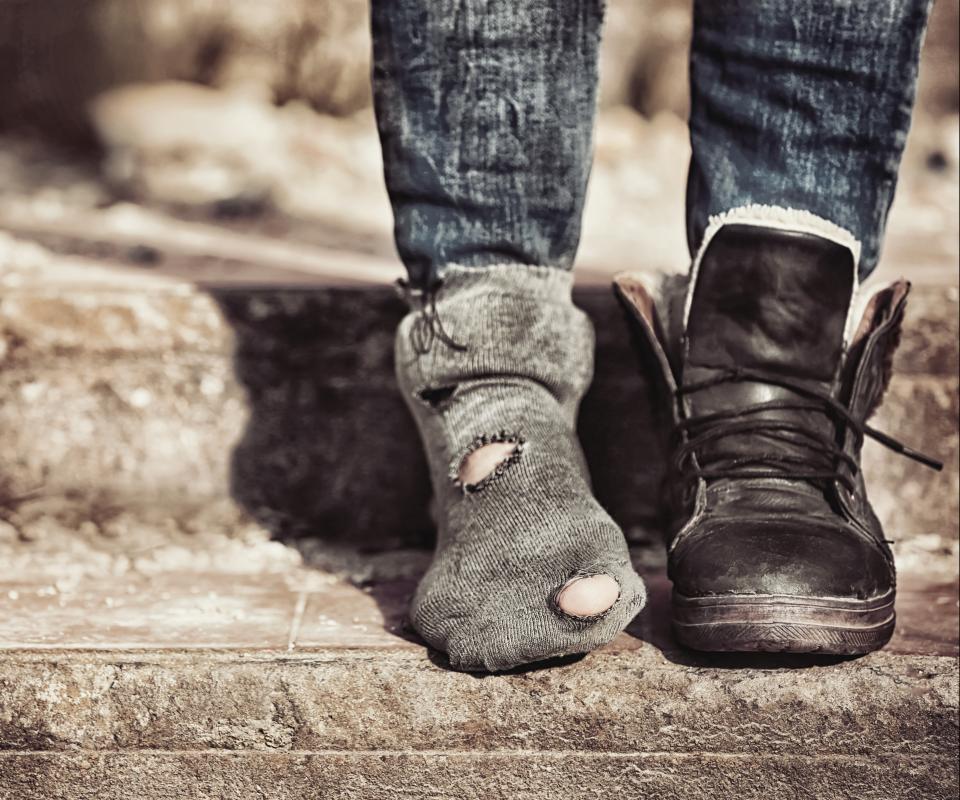
Chantal Drion du Chapois (Fund)
The aim of the Fund is to fight poverty in Belgium

Danone (Charity Account)
Support for social and sustainable projects in Belgium in which employees are directly or indirectly involved.

LAUREL² (Fonds)
The objectif of the Fund is to serve present and future generations by supporting projects and activities of general interest with a cultural, social or ecological purpose.
Other press releases
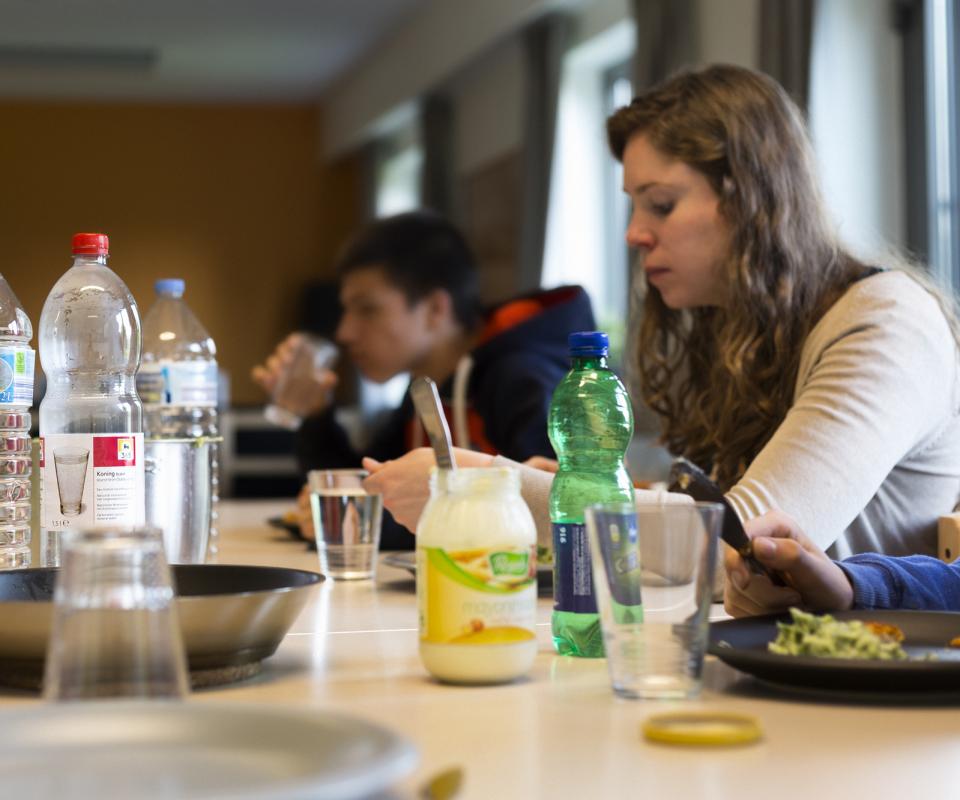
When only solidarity enables you still to eat
In response to the challenges facing the food aid sector, the KBF is supporting 71 organisations, for a total of €500,000.

Energy crisis: almost 3 million euros in support for around 500 organisations fighting poverty
Following the Energy Crisis call, the KBF has been supporting almost 500 organisations that fight poverty, providing a total of almost 3 million euros.

Inequality among Belgians regarding use of digital essential services
Inequality among Belgians regarding use of digital essential services. A study conducted on the initiative of the KBF gives an overview of inequality linked to the use of these s…
